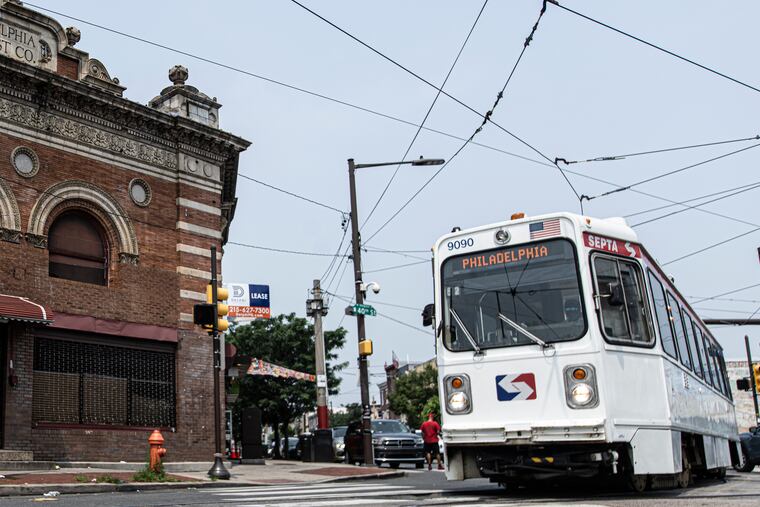SEPTA must make smart choices to restore rider confidence | Editorial
As the transit agency struggles with funding, ridership, and public safety crises, it cannot afford to make inefficient decisions.

On July 7, public transit users were greeted with an unexpected perk. Thanks to a glitch in the SEPTA Key payment system, the region’s trains, trolleys, subways, and buses were free to ride. While users saved a few dollars, that malfunction cost SEPTA hundreds of thousands of dollars in lost revenue. It was yet another unexpected expense courtesy of Conduent, the fare system’s beleaguered technology vendor.
The Key program has already cost $263 million — more than twice its original budget. Between out-of-control overages, unfriendly design choices, and a series of restrictive features, the Key program left many riders wishing the transit agency had never left the analog age.
Tokens may have been old-fashioned, but at least they worked.
Meanwhile, New York’s MTA and other mass transit providers have already moved forward with digital payment systems that are nearly seamless in comparison.
With bids for Key 2.0 coming due, it is critical that SEPTA avoids the mistakes that plagued the original program and adheres strictly to best practices in digital procurement as part of a smarter overall management strategy to restore rider confidence.
» READ MORE: SEPTA needs more money. It also needs to be smarter with what it has | Editorial
There are some signs that the transit agency has learned from its mistakes. SEPTA Key initially utilized closed-source or proprietary technology, meaning that any updates, patches, or other fixes needed to be done by the initial programmers. This made it easy for Conduent to keep coming back with more bills for the agency since they had the only tech workers familiar with the system.
In this round, SEPTA is focused on securing “open source” technology, which allows for significantly more flexibility. SEPTA’s bid request also insists on privacy protections for rider data, a move recommended by privacy activists like the Electronic Frontier Foundation.
In other ways, however, the proposal continues to fall short.
One problem is the length of the contract, which is 12 years. While that might not seem long in government terms, it is an eternity in the fast-paced tech world. Being stuck with one vendor for more than a decade is overly limiting. Experts said a contract that was no longer than five years would be prudent.
With SEPTA prioritizing open-source technology, it should be possible to mix and match vendors based on their own competencies and rider needs. That is what’s recommended in the federal government’s advice for state and local information technology projects, which says that it is “smarter to break large projects into a handful of small, quasi-independent software projects. … Instead of building a monolith that everybody will lament in a few years, you build a little ecosystem, in which each piece can be upgraded and modified easily, as changing needs will demand.”
Insisting on one large, long contract also restricts the pool of potential bidders. While 56 people attended SEPTA’s bid meeting, it is likely that only industry giants such as Cubic, Accenture, and yes, Conduent would be able to handle the scale and scope of the work. Twelve years tethered to Conduent is an outcome the agency should avoid.
Another area where SEPTA must adhere to best practices is the proposed Conshohocken Parking Garage, which according to current projections would cost the agency roughly $100,000-a-space to build. SEPTA’s smart decision to hold off on the project generated frustration from car dealership owner and Conshohocken Borough Council President Colleen Leonard, who cited the need for the garage due to the borough’s increasing role as a regional employment center.
However, anyone coming to Conshohocken for work via transit would be leaving the station on foot, not utilizing the parking garage. It makes much more sense for the agency to develop the land as housing, which would generate ridership and rental income. Especially when the proposal calls for more parking spots than the station currently has riders. SEPTA’s board should cancel the project, rather than approving a proposed $19 million construction bid.
The agency faces an uncertain fiscal future as federal pandemic money runs out and concerns over crime and disorder on the subway and the El have many longtime riders and employees no longer feeling safe. Not to mention that since last Friday, a series of bus crashes have added to the mounting woes.
SEPTA cannot afford to make inefficient decisions — be it regarding its payment system or suburban parking spaces — during the current funding, ridership, and public safety crises. If the agency’s leadership and board members hope for a return of better days, they must continue to act judiciously.